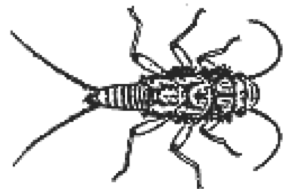Mrc Unit 2 Chemistry Water Stage 2
-
What are chemical contaminants?
-
Elements of compounds that are found in drinking water
-
Fertiliser pollutants that are found in ground water
-
Elements or compounds that may be harmful if consumed in drinking water
-
This quiz covers topics on chemical contaminants, heavy metals, water salinity, and sources of salts in water, focusing on their environmental and health impacts.

Quiz Preview
- 2.
Why are Heavy metals dangerous in drinking water?
-
They are toxins that can affect the nerves that control breathing
-
They are toxins that affect the ability to digest specific amino acids in foods
-
They are toxins cause changes in the Brain that are irreversible
Correct Answer
A. They are toxins that can affect the nerves that control breathingExplanation
Heavy metals are dangerous in drinking water because they are toxins that can affect the nerves that control breathing. When consumed, heavy metals can accumulate in the body and interfere with the normal functioning of the nervous system. This can lead to respiratory problems and potentially cause breathing difficulties or even respiratory failure. Therefore, the presence of heavy metals in drinking water poses a significant health risk.Rate this question:
-
- 3.
What is salinity?
-
The amount of Magnesium and Sodium ions found in water
-
The amount of Sodium Chloride found in water
-
The amount of ionic compounds found in water
Correct Answer
A. The amount of ionic compounds found in waterExplanation
Salinity refers to the amount of dissolved salts and other ionic compounds found in water. It is not limited to just Magnesium and Sodium ions or Sodium Chloride, but includes all types of ions present in the water. Salinity is an important parameter in determining the quality of water, especially in marine environments, as it affects the density, freezing point, and conductivity of water.Rate this question:
-
- 4.
Where do salts found in the water system originate from?
-
Dissolving mineral deposits
-
From oceans evaporating and transport of ionic salts in atmospheric water vapour
-
From the decomposition of organic matter such as animals and plant life
Correct Answer
A. Dissolving mineral depositsExplanation
Salts found in the water system originate from the process of dissolving mineral deposits. This occurs when water comes into contact with rocks and soil, causing minerals to dissolve and become ions in the water. These dissolved ions, such as sodium, chloride, calcium, and magnesium, contribute to the salt content in the water. This process is natural and can happen in various water sources, including rivers, lakes, and underground aquifers.Rate this question:
-
Quiz Review Timeline (Updated): Mar 20, 2023 +
Our quizzes are rigorously reviewed, monitored and continuously updated by our expert board to maintain accuracy, relevance, and timeliness.
-
Current Version
-
Mar 20, 2023Quiz Edited by
ProProfs Editorial Team -
Oct 06, 2019Quiz Created by
CB
Science - Pollution And Contamination
Welcome to science-water.webs.com's trivia quiz. This quiz which consists of a few questions will test your understanding on the contamination of water and the water...
Questions:
13 |
Attempts:
130 |
Last updated:
Mar 18, 2024
|
Environmental Chemistry 9 - Practice Quiz
Circles O = multiple choice
Squares [ ] = choose multiple answers
READ THE QUESTIONS CAREFULLY!
Questions:
34 |
Attempts:
2036 |
Last updated:
Mar 21, 2023
|
Environmental Chemistry Quiz 2
Environmental chemistry is the scientific study of the chemical and biochemical phenomena that occur in natural places. This branch of science helps us to understand the...
Questions:
17 |
Attempts:
1278 |
Last updated:
Mar 20, 2023
|
 Back to top
Back to top





